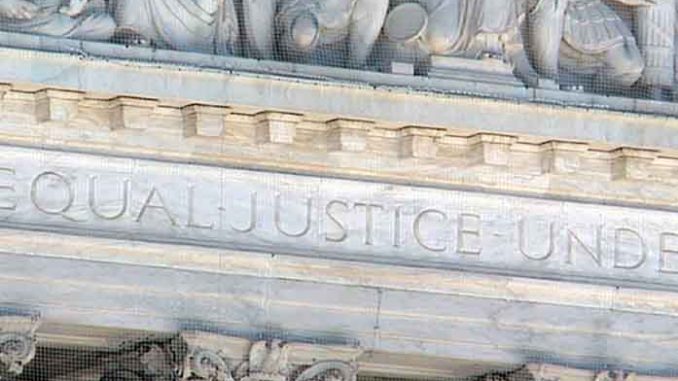
Republican attorney general candidate Abe Hamadeh will have his day in court Friday to argue why Kris Mayes should not be declared Arizona’s next attorney general. But it has been a chaotic week for his legal team and supporters to get to that point.
Hamadeh is only 511 votes behind Mayes in the statewide canvass results of the 2022 General Election. But he and the Republican National Committee (NRC) are challenging the outcome, contending enough votes were improperly counted that the outcome would show Hamadeh really won.
On Thursday, Judge Lee Jantzen of the Mohave County Superior Court authorized three three-person teams to travel to Maricopa, Navajo, and Maricopa counties to review ballots reported as having an undervote in the attorney general’s race. An undervote is recorded when the tabulator does not detect a vote in a specific race.
Hamadeh has argued that some ballots may have been reported as having undervotes due to problems with the tabulators reading the ballots. There were more than 40,000 undervotes in the attorney general’s race, according to Arizona Secretary of State Katie Hobbs.
Also on Thursday, Hamadeh lost his effort to expand his pretrial ballot review to include the Cast Vote Record (CVR) from each of Arizona’s 15 counties.
Former Secretary of State Ken Bennett advised Jantzen in a declaration filed in support of Hamadeh that the CVR is a spreadsheet which shows the votes cast on each tabulated ballot, with each row corresponding to a ballot that was cast and each column indicating the voter’s choice on that ballot in each race on that ballot.
“The information in the CVR directly correlates, row by row with ballot images, that is, pictures of ballots,” Bennett explained.
Jantzen denied the request based on the language of Arizona’s election challenge law which refers specifically to review of “ballots.”
Now Maricopa County is teaming up with my opponent to try to keep ballots that were erroneously not counted for me from being shown to the public.
They operate in darkness.
— Abe Hamadeh (@AbrahamHamadeh) December 22, 2022
The judge also denied Hamadeh’s request for a list voters who had their provisional ballots rejected in Maricopa County. The plaintiffs argue that the county may not have followed state law and the Arizona Elections Procedures Manual when deciding whether to accept those provisional ballots.
It was possible, however, for Hamadeh and the RNC to have sought that information from Maricopa County a few weeks ago through a public records request.
Jantzen also hedged his bets Thursday on whether the election challenge trial must be held Friday or could start next Tuesday after the holiday.
The defendants argue that state law requires the trial to start no later than Friday, while La Sota and the judge questioned whether a Tuesday start is allowable. In the end, Jantzen erred on the side of caution and affirmed the trial for Friday starting at 9 a.m. in Kingman.
The court is providing a YouTube livestream, with the link found in the Case Notes field at https://www.mohavecourts.com/ted-boyd-et-al-vs-kris-mayes-et-al
The Hamadeh-Mayes race is one of three contests that were part of a statutorily mandated recount due to a low margin of victory. Judge Timothy Thomason of the Maricopa County Superior Court will receive the confidential recount results from all 15 counties and announce those results on Dec. 29.
Elections officials in Arizona’s counties are torn as to whether the VCR is a confidential election record because it is essentially a ballot, only in a different format.
Joseph LaRue, an attorney for Maricopa County, said Thursday that the county believes the VCR is a public record and thus releasable, but only if a portion of each ballot’s information is redacted to protect against any nefarious activity that could help identify the voter of each ballot.
An attorney for Navajo County argued it is not a public record. The CVR issue is currently the subject of a public records challenge being heard by the Arizona Court of Appeals.
